chickens with gardening?
backyardmomma
16 years ago
Related Stories
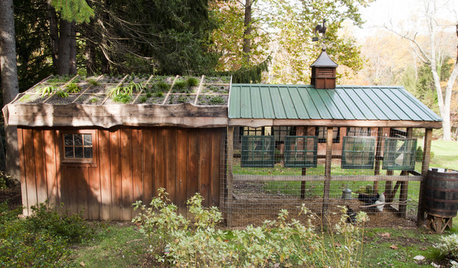
FARM YOUR YARDHouzz Call: Show Us Your One-of-a-Kind Chicken Coops
Do you have a fun or stylish backyard shelter for your feathered friends? Post your pictures and stories in the Comments!
Full Story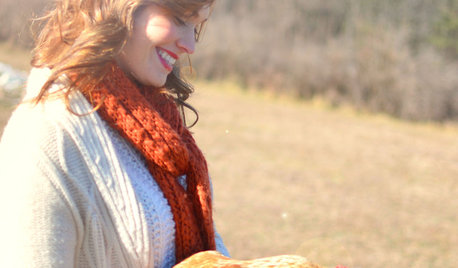
GARDENING AND LANDSCAPINGRaise Backyard Chickens Without Ruffling Neighbors' Feathers
Before you build a coop in the backyard, follow these strategies to help keep your neighbors from squawking
Full Story
INSPIRING GARDENSChickens, Chess and Swimming Star in a Silicon Valley Yard
Some fowl play is afoot in these outdoor rooms, but the family members and their many guests have a pretty good time too
Full Story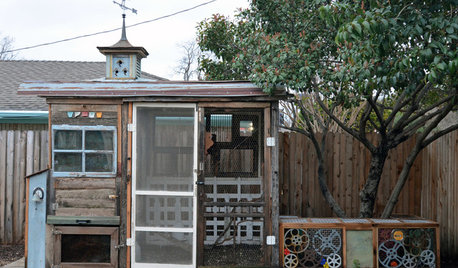
OUTBUILDINGSQuirky Meets Practical in a Dallas Chicken Coop
These hens have a stylish backyard coop built from recycled materials
Full Story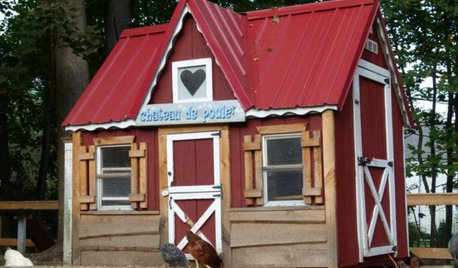
GARDENING AND LANDSCAPINGChicken Coops That Rule the Roost
These 8 chicken coops designed by Houzz users will have you clucking in admiration — and maybe even planning a henhouse of your own
Full Story
FARM YOUR YARDCollecting Rainwater and Eggs From a California Chicken Coop
See how a butterfly roof helps a hen home’s design soar into double-duty territory
Full Story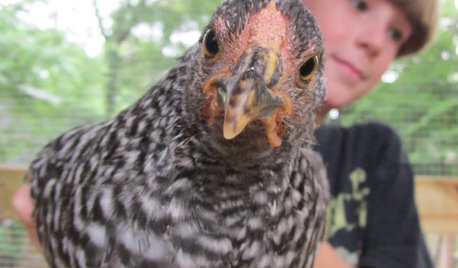
FARM YOUR YARD4 Farm-Fresh Chicken Coops in Urban Backyards
These Atlanta henhouses are worth crowing about for their charming, practical designs
Full Story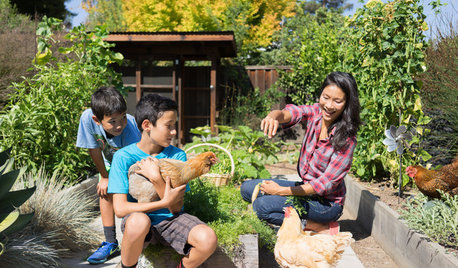
HOUZZ TV FAVORITESHouzz TV: An Edible Backyard in an Eichler Home
A family of 4 brings form and function to a Silicon Valley yard with vegetable gardens, chickens, beehives and more
Full Story
GARDENING GUIDESGreat Design Plant: Milkweed
Quit cringing. This not-weed plant is a sight to behold in the garden, has a delicious vanilla scent and is a magnet for butterflies
Full Story
MY HOUZZMy Houzz: A Dream of Country Living Comes True
A couple garden and raise chickens in their retreat-like historic Maryland property, learning as they go
Full Story


Okiedawn OK Zone 7
brandy222
Related Discussions
My Hen and Chicken theme garden is done for the year.
Q
Pictures of my Hen and Chicken Theme Garden
Q
Chickens & Gardens
Q
chickens and gardening, learning as I go
Q
backyardmommaOriginal Author
Okiedawn OK Zone 7
Okiedawn OK Zone 7
goneriding
Okiedawn OK Zone 7
barton
goneriding
Okiedawn OK Zone 7
gamebird
Okiedawn OK Zone 7
Macmex
oakleif
mulberryknob
ilene_in_neok
Okiedawn OK Zone 7
soonergrandmom
goneriding
Okiedawn OK Zone 7
goneriding
okiegardeningmom
okiegardeningmom
Okiedawn OK Zone 7
okiegardeningmom
Okiedawn OK Zone 7
davidgreen
Wiley
Okiedawn OK Zone 7